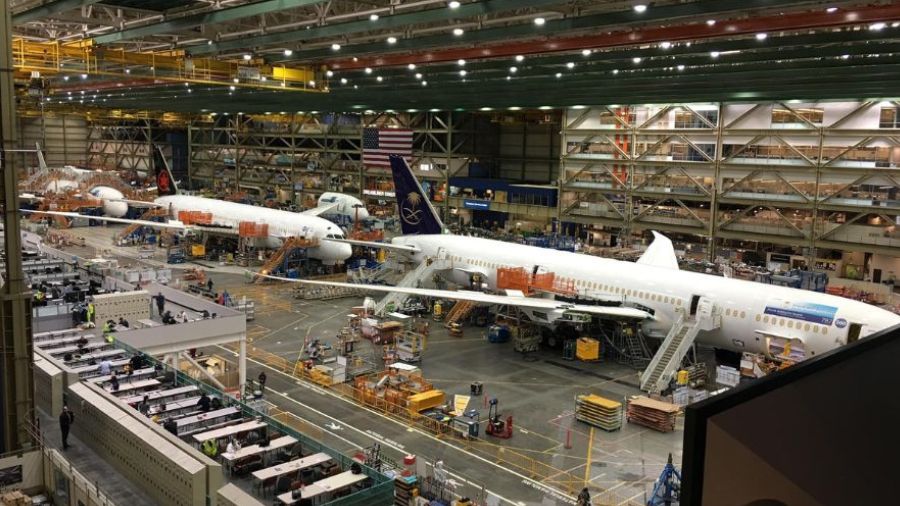Washington sailors gearing up for 750-mile ‘Race to Alaska’
Jun 22, 2016, 6:01 AM | Updated: 9:47 am

Sixty-five teams have entered to compete in the second Race to Alaska. Competitors range from sailors with decades of experience to newcomers. The race will see those participants traveling in all kinds of vessels: sailboats, kayaks, homemade contraptions, and one man on a stand up paddleboard. (photo courtesy of Race to Alaska organizers)
(photo courtesy of Race to Alaska organizers)
On Thursday, the starting gun goes off for nearly 200 sailors racing from Port Townsend, Washington to Ketchikan, Alaska. It’s called Race to Alaska. The catch: no motors or engines are allowed.
Participants can only use the power of Mother Nature or their own sweat, all while winding their way through a labyrinth of islands from the northwest corner of Washington up through what’s called “the inside passage” to the southeast corner of Alaska.
Jake Beattie, executive director of the nonprofit Northwest Maritime Center in Port Townsend, is the mastermind behind the whole thing.
“Like all good ideas, beer was involved,” Beattie says. A longtime boat lover himself, he explains he was trying to find a way to help people reconnect to the water. “There’s a lot of perceived barriers to having an adventure on the Puget Sound, or on the way to Alaska. Because waterfront’s expensive, boats are expensive. And I think there’s this perception that they have to be really expensive and complicated for people to get out there and really enjoy this incredible national treasure that we all are lucky enough to live next to.”
And he figured a little incentive wouldn’t hurt either.
“And it was right around the same time as NASA’s X-Prize, where they just said get into space, and if you’re the first person to do it we’ll give you $10 million dollars,” Beattie recalls. “So we just said what if we just nail 10 grand to a tree in Alaska and then see what happens? Strip away all the rules, strip away all the complication, and make it about an adventure on one of the most wild coasts that still exists on the planet.”
That’s right, 100 Benjamins are on the line. It’s presented as a trophy still stuck to a piece of driftwood. Second place finishers win a set of steak knives.
Despite these lavish prizes, Beattie had no idea it would take off. He says he figured a few of his buddies would join the bandwagon and it would end, at most, as a fun media stunt. But the 35 teams were on board for the first race last year. This year, 65 teams have signed on.
“There are truly world class athletes. We have Olympians — multiple Olympians, actually — and then we have some people who really just want to get off the couch and do something incredible,” Beattie says.
To enter, a team must submit a $750 fee, plus a small cost per person. And every participant must apply with an “adventure resume,” detailing their unique skills. They take all comers from all around the world, regardless of sailing experience — as long as you have the wherewithal and some watercraft to make it to the finish line. Beattie hasn’t turned anyone away, yet. However, several hopefuls have backed out of the race in order to hone their skills.
“It takes a deliberate sort of intentionality around thinking outside of the box, and doing something most people would think is a pretty bad idea,” Beattie says.
The vessels are just as diverse as the competitors. Some teams will traverse the passage in the latest racing yachts while others will cross in more vintage selections or even dinghies. Multiple participants have made their own boats — some include bicycle pedals to keep going when winds die. There’s even one man who plans to finish the 750 mile challenge on a paddle board.
The course itself is done in two legs. First, a 40-mile qualifying run from Port Townsend to Victoria, Canada. Anyone who finishes that in 36 hours can continue on to Alaska.
That’s where the real challenge starts.
“There is no course for the race. You go through two waypoints. Other than that, you can pick whatever route you want,” Beattie says.
One of the waypoints is Seymour Narrows, which is a famous tidal rapids, Beattie says. The current there goes 16 knots (18 mph), and switches directions four times a day.
“So it’s like a river that switches directions and makes these huge 30-foot-wide whirlpools,” Beattie says. “Usually, once a year, there’s a rowboat that gets sucked under and gets spit out a few miles later.”
The weather conditions are nearly impossible to predict, something Beattie says is a product of sailing after spring storms but before summer doldrums set in. Last year, the race started in gale force winds.
“It’s not like an ocean race where you just go, and you have to avoid some other ships that are out there,” Beattie says. “This is a unique passage that’s been done for thousands of years by boats without engines, from native canoes all the way up to people who do it every year on kayaks and things. It’s cold, so hypothermia is a big factor.”
The first winners completed the trek in five days, while the last to finish did it in 23 days.
And there is a cut-off. A sweeper boat will disqualify any participants who can’t make it to Ketchikan by July 20. Last year, only about half of the racers met that requirement.













